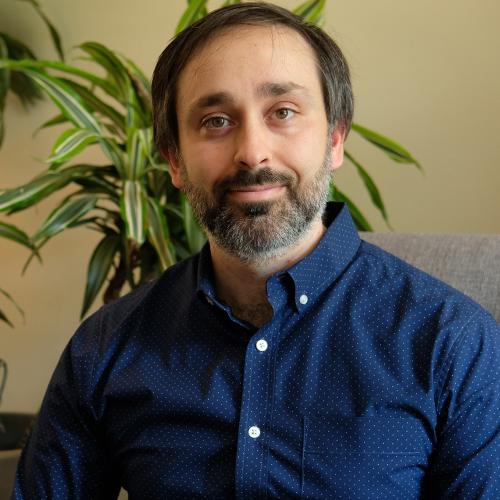A new project led by Assistant Professor Matthew Turk is among the napari plugin projects that have recently received support from the Chan Zuckerberg Initiative (CZI) in its effort to advance bioimaging technologies. Visiting Research Scientist Christopher Havlin will serve as co-principal investigator on the project, "Enabling Access To Multi-resolution Data."
napari is a Python-based, open-source tool that allows practitioners, biologists, and other scientists to leverage Python’s scientific resources without the need for prior coding experience. While napari's graphic user interface allows researchers with limited coding experience to use the latest image processing techniques to tackle a wide range of problems, the built-in plugin framework allows developers to easily add and share new functionality.
"Plugin developers and software maintainers are essential to biomedical science," said CZI Science Product Manager Justin Kiggins. "We hope these new members of the growing community of academic plugin developers continue to create open source software that enables advances in biomedical science, and we invite others to contribute new plugins to the napari hub."
For their project, Turk and Havlin will build a napari plugin that allows access to more complex data storage formats using yt, a Python-based, open-source package for analysis and visualization of volumetric data. According to the researchers, while there is some overlap in functionality between napari and yt, "the new yt-napari plugin will leverage strengths from both packages to provide a new interactive visualization environment for the yt community while demonstrating to the napari community an approach for accessing geometrically complex and co-registered fields stored in hierarchical data formats."
"We're really excited to provide access to multi-resolution datasets in napari and make accessible to users of yt the sweeping functionality enabled by napari as well," said Turk.
Turk also holds an appointment with the Department of Astronomy in the College of Liberal Arts and Sciences. His research focuses on how individuals interact with data and how that data is processed and understood. He holds a PhD in physics from Stanford University.
Havlin's work focuses on developing tools for visualization and analysis of volumetric data in the physical sciences. He holds a PhD in geological sciences from Brown University.
The Chan Zuckerberg Initiative was founded in 2015 to help solve some of society's toughest challenges—from eradicating disease and improving education, to addressing the needs of our local communities. CZI's mission is to build a more inclusive, just, and healthy future for everyone.

